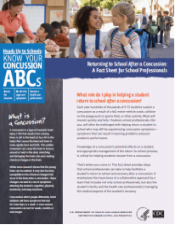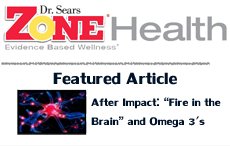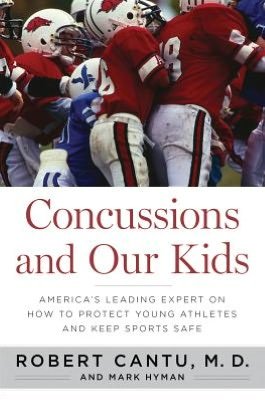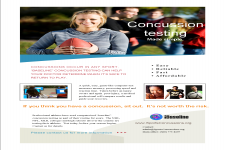Signs & symptoms
- Created on Monday, 04 July 2011 10:31
- Last Updated on 21.02.2013
- Published Date
Signs and symptoms of concussion
There are many different symptoms reported by athletes who suffer concussions, and in some cases they may not be easily detected for hours or days after the injury. However, look for clues immediately and make sure athletes are re-evaluated every few minutes over several hours. At home, parents should watch for the following symptoms as well as complaints that lights are too bright, noises are too loud, or your child has difficulty concentrating while watching TV or playing video games. Any of the following are indicative of concussion:
|
|
|
|
|
|
|
|
|
|
|
|
|
|
|
|
|
|
|
|
Source: Centers for Disease Control and Prevention (CDC)
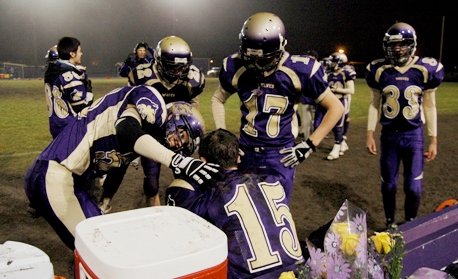
Concussion Experts: For Kids- No Sports, No Schoolwork, No Text Messages
Some signs and symptoms can be subtle. Encourage athletes to report any of the above, and do not allow them to participate in a game or practice until a qualified medical professional has given the OK and they are 100% symptom-free both at rest and during a gradual return-to-play procedure.
Brain Health
It is rare for a sports-related concussions to result in a more serious injury such as a skull fracture or hematoma. Nonetheless, it pays to be aware that catastrpohic injuries do sometimes occur as ...
read more...-
CT scans may increase brain cancer risk
Children and young adults scanned multiple times by computed tomography (CT), a commonly used dia...
-
Sub-concussive impacts may affect learning
MINNEAPOLIS – A new study suggests that head impacts experienced during contact sports such as ...
-
Physical activity boosts learning
INDIANAPOLIS – School administrators looking to restructure the academic schedule should consid...




Neuroscience
Athens, Ga.- University of Georgia researchers have developed a map of the human brain that shows great promise as a new guide to the inner workings of the body's most complex and critical organ.
...
read more...-
Does CTE infect neuron to neuron?
NFL Hall of Famer "Iron Mike" Webster's life ended in 2002 when he suffered a heart attack at age...
-
Progesterone seems to protect neurons after injury
It is not yet known why girls suffer concussions at a higher rate than boys. The most prevalent...
-
Amino acids may restore concussion's chemical imbalance
Concussions are often called the "invisible" injury because they are usually not detectable by t...
Resources
- School professionals play an important role in the health of all students. Recognizing the signs and symptoms of concussion is important, as is managing their return to school ...
- https://
- CDC's Concussion Training for Clinicians
-
Concussion Education Video Programs - Free and Easy
Parents, athletes, coaches and medical professionals have access to concussion education created...
-
New concussion guidelines for team physicians
INDIANAPOLIS – Team physicians who assess and treat athletes suspected of concussion have new ...
quick links
Latest News
Concussions Occur...
...in Any Sport
REMOVE athlete from play
REFER to medical provider
REST no sports, no texting/TV
RETURN only with doctor's OK
Source: Children's Hospital Boston, Sports Concussion Clinic














